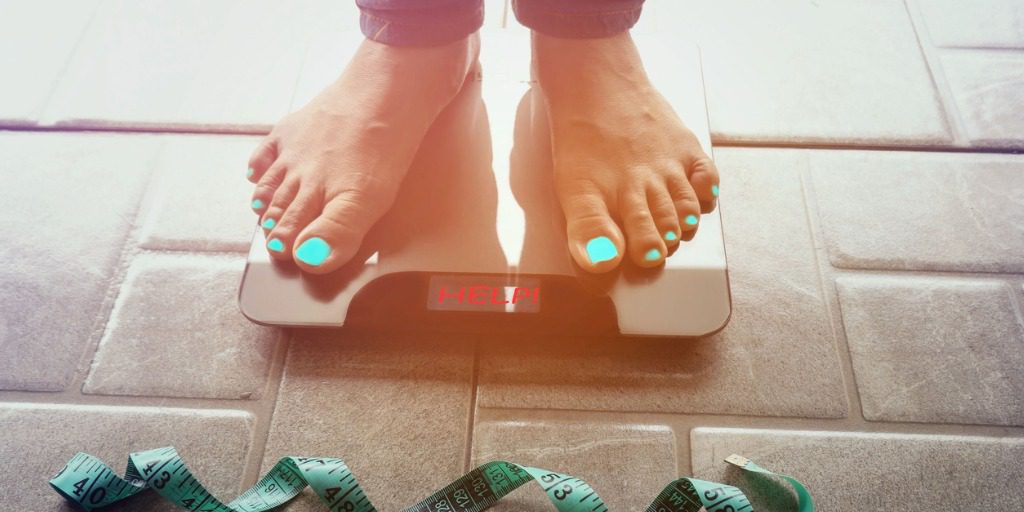Reviewed by Brian St. Pierre, MS, RD
When it comes to fitness and health, it’s easy to make big plans—and even easier to let them go.
It’s too hard, you’re too tired, or you just can’t find the time to incorporate fitness into your regular routine.
(Understandable. Change is hard, and if you’re like many of our clients, you have legitimate reasons for being busy and pulled in multiple directions.)
Accountability in fitness can help you stay on track—even amidst a full, challenging life—and achieve your goals.
Here’s how it works and how to leverage it.
What is accountability?
Accountability is foundational for achieving your fitness aspirations.
It means taking ownership and responsibility over things like what you eat, how much you move, and your overall lifestyle.
Whether your aim is to lose weight, adopt a healthier diet, or train for an event, accountability will help you make progress.
Some think of accountability as a rigid set of rules to follow whether or not you want to, but it’s not that.
Instead, accountability is a force that can help you make positive changes in your life that feel good and align with your overall values and goals.
Social accountability—to a partner, a coach, or an online community—is one of the best “flavors” of accountability. When you have people you have to report to, and who support you, you create a sense of being “in this together.” That can be incredibly motivating.
Accountability is non-judgmental, and rather serves to acknowledge your efforts and attempts at improvement.
Why is accountability a crucial component of your fitness routine?
When you’re held accountable, whether to a group or an individual, you tap into the influence of social expectations.
Consider the role of a personal trainer or a health coach, for instance. They assist in establishing systems and frameworks for setting goals, creating action plans, and tracking and assessing progress. Your coach holds you accountable to keep you on track toward achieving your long-term fitness goals.
Research supports the importance of accountability in achieving goals:
▶ Conceiving an idea (“I want to get fit”) has a 10 percent likelihood of execution.
▶ Strategizing how to implement your idea (“I’ll go to the gym every day and eat healthier”) boosts the odds to 50 percent.
▶ However, committing to your goals alongside someone else (“I’ll hire a health coach to guide me”) skyrockets your chances to an impressive 95 percent.
Tips for staying accountable to achieve your fitness goals
Fitness accountability is great in theory but can still be challenging to leverage consistently.
Here are six ways to help yourself stay accountable:
Accountability tip #1: Document your progress.
Documenting goes beyond just tracking your workouts; It can also include recording your meals, emotions, and a variety of subjective and objective progress indicators. This can not only reinforce accountability but also motivation.
There are various effective ways to document progress:
- Journaling: Write down your daily activities, workouts, and reflections. This provides a clear record of your progress and emotional state, allowing you to identify patterns and make necessary adjustments.
- Taking photos: Visual documentation offers a tangible representation of your physical transformation. Regular pictures can be a vivid reminder of how far you’ve come.
- Keeping a food journal: Logging your dietary choices provides insight into your nutritional habits. This can help you identify patterns and their effects on your progress.
- Measuring body composition: Tracking changes in girths, body fat percentage, muscle mass, and other metrics offers objective indicators of progress that are often more reliable than weight.
- Measuring how you feel: Tracking things like energy levels or mood can help you see many of the ways that taking steps to be physically healthier can improve your overall well-being.
Accountability tip #2: Set the right goals.
Goal setting is a skill in and of itself, and knowing how to set the right goals can make success more likely.
One of the major things to keep in mind when setting goals is how the goals themselves are structured. Try implementing SMART goals, which are Specific, Measurable, Achievable, Realistic, and Time-Bound. Here’s an overview of the characteristics of SMART goals:
- Specific: Pinpoint an exact target goal, focusing on the elements that are within your control. This clarity sharpens your focus.
- Measurable: You should be able to track your progress in some way. Plan how you’ll measure success and monitor your journey.
- Achievable: Set a goal that’s challenging, but still within your capabilities. Give yourself a fair, honest opportunity to succeed rather than setting unattainable ideals.
- Realistic: Ensure your goal aligns with your circumstances and lifestyle. Consider how you might integrate your intended habits into your current routine. When a goal is genuinely realistic and fits into your real life, you’re more likely to sustain it.
- Time-bound: Establish a specific timeframe for achieving your goal, whether it’s a week, a month, or several months. This deadline prompts regular evaluation of your progress and provides a clear endpoint.
The type of goals you set—and the mindset you have around them—can also be a big factor in how realistic your goals are and how capable you feel to achieve them.
Some types of goals might feel overwhelming and out of reach, because it’s not exactly clear how you can get there, or some part of it is out of your control. But by changing how you frame your goals, you can increase your chances of achieving them.
Here are some tips:
- Focus on the behavior you want to change, rather than the outcome you want to accomplish. Instead of “Lose 10 pounds,” focus on “I’ll learn to eat until I’m satisfied (instead of stuffed).”
- Focus on behaviors to approach, rather than what you need to avoid. Instead of “Stop snacking on ‘junk food,’” try “Snack on foods with high nutritional value.”
- Focus on mastery over performance. Instead of “I want to beat my personal record at this year’s marathon,” try “I want to improve my running technique.”
Accountability tip #3: Celebrate your accomplishments (big or small).
Celebrating your accomplishments, no matter how small, is a powerful motivator.
Enjoying the process and associating positive experiences with your progress significantly impacts your mindset and commitment.
Personal rituals, like adding a dollar to a jar after every workout, serve as visual reminders of your dedication and hard work. After a while, you’ll see how far you’ve come. (And maybe even reward yourself with something fun!)
Accountability tip #4: Find a buddy.
A partner acts as a support system, providing motivation and encouragement.
Look for someone who genuinely shares your commitment to fitness. They should be someone you trust and who can be candid with you about your progress.
The dynamic with your accountability buddy is two-way. If you commit to a workout session and fail to show up, expect a phone call or a message from your partner. Likewise, if they miss a session, reach out to them in the same spirit of encouragement and support.
Having an accountability buddy creates a positive social environment and ensures that you’re not on this journey alone.
Accountability tip #5: Change your perspective.
If you can, try shifting your mindset from “I hate working out” to “Working out helps me feel good.”
At the very least, just notice how you talk to yourself about your habits. It can transform the way you approach your fitness routine.
When you focus on the benefit of a habit, it can turn the task from an obligation into an opportunity for self-improvement and enjoyment.
(The same goes for diet and nutrition. Rather than focusing on giving up certain foods, try to focus on the health benefits and flavors of the foods you’re choosing to eat instead.)
Self-compassion also helps. When you genuinely care for yourself, you more naturally make choices that prioritize your overall and long-term well-being.
Accountability tip #6: Work with a coach.
When you hire a coach, you introduce possibly one of the best sources of accountability.
This commitment means that you have an obligation to show up, knowing that your coach expects your presence.
While working out, the presence of a coach reduces the temptation to cut corners or skip repetitions. With their guidance, you’re held accountable for every action, pushing you to give your best.
The financial commitment of hiring a coach often acts as a strong motivator for accountability, too. By hiring a coach, you’re making a tangible investment in your health and fitness. This instills a sense of responsibility, making you more likely to stay dedicated.
Your coach also plays a pivotal role in helping you stay focused and directed toward your goal. They can help keep track of your progress and work with you to modify your action plan if you encounter obstacles or plateaus.
We’re here to help you reach your goals
Creating a new nutrition and fitness plan can be daunting, but you don’t have to do it alone.
By building habits that improve your physical and mental health, bolster your immunity, and help you manage stress, Precision Nutrition can help you achieve results you can sustain.
Learn more about how a Precision Nutrition coach can help you stay accountable to your fitness goals with our 1:1 Coaching Program. All of our coaches are experts in fitness, nutrition, and behavior change. Don’t wait to experience a healthier you.






Share